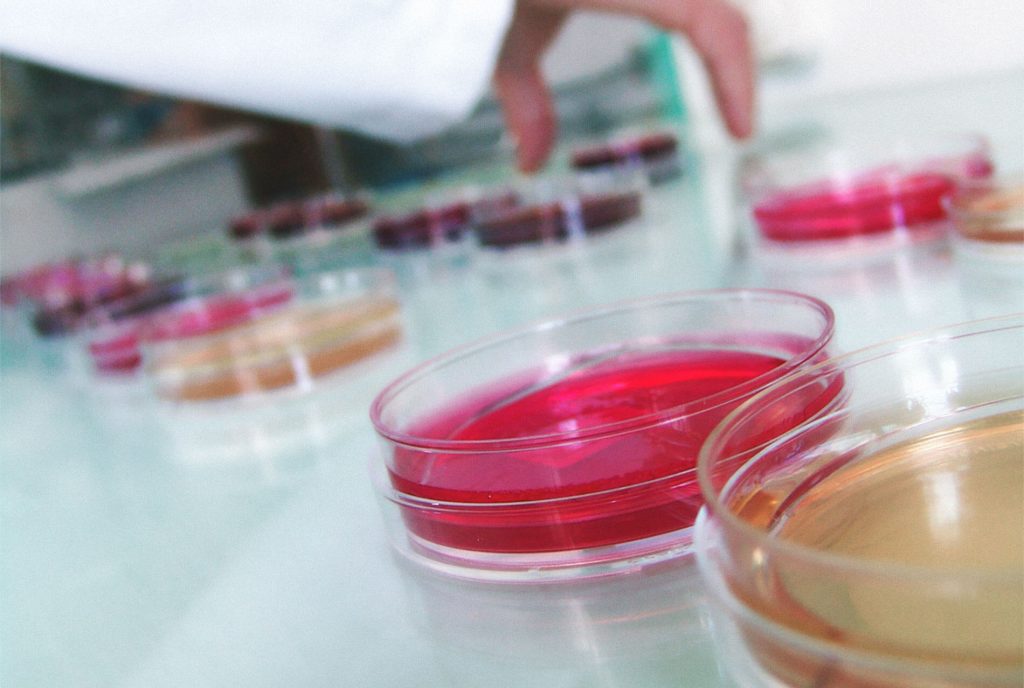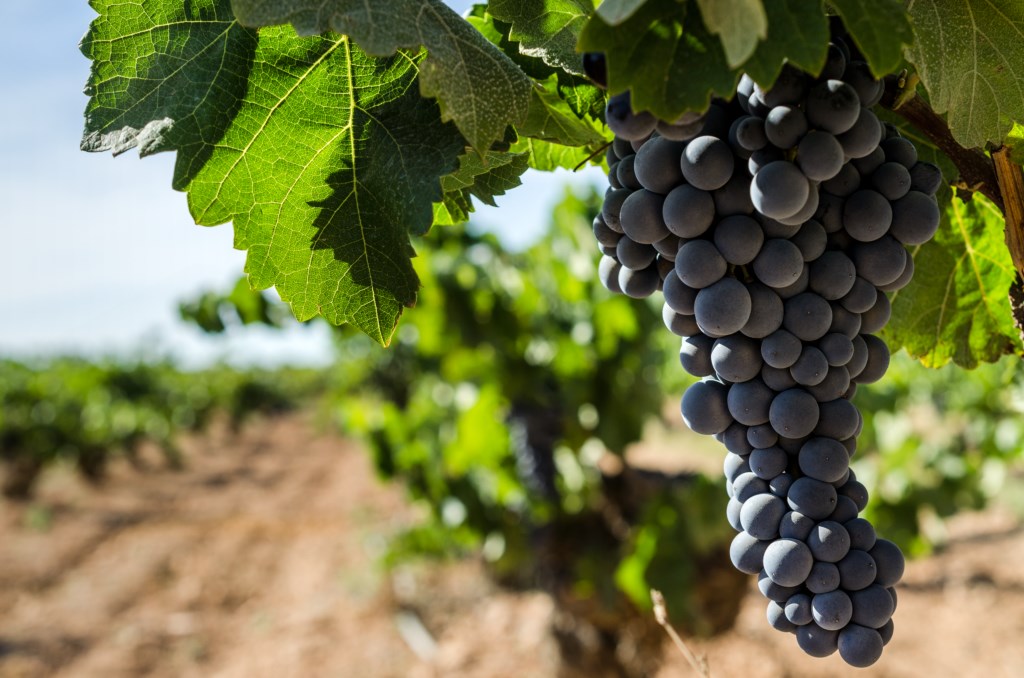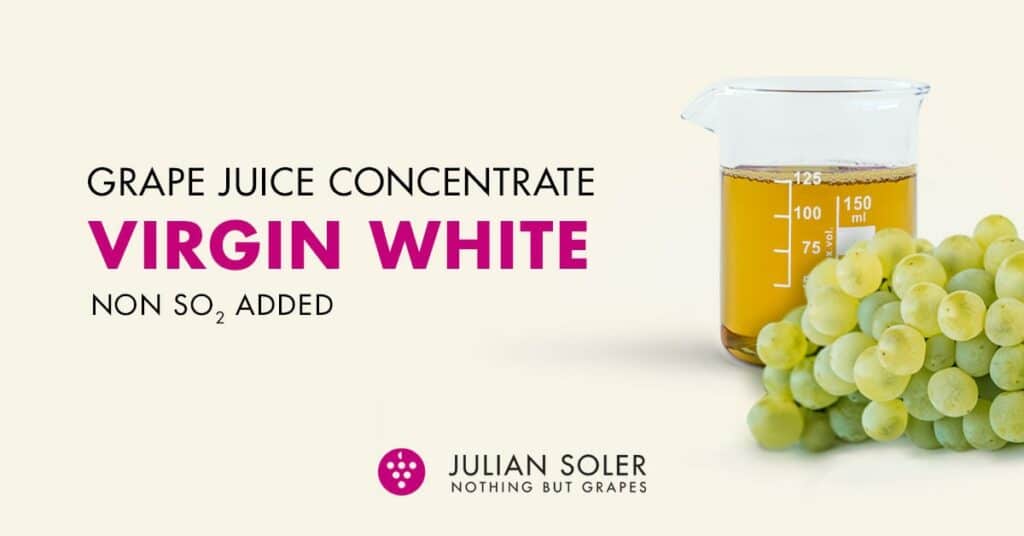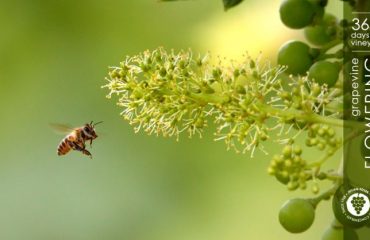There are several types of sugars in the daily diet. Some sugars are added to food, others are present in fruit and vegetables. The truth is that sugars are a source of energy and, according to the European Food Safety Authority EFSA, some types of sugars, such as glucose, are essential for the proper functioning of the brain, heart and other organs. But everything in excess is harmful. Too much sugar in the body can therefore be linked to health problems such as obesity, type 2 diabetes and high cholesterol levels.
For this reason, industries and consumers have opted for alternatives to added sugars, such as artificial or natural sweeteners. We make a comparative analysis focusing on two options: aspartame versus natural sugars from grape concentrate. We detail how healthy they are and what international health organisations think.
- Alternatives to added sugars: artificial or natural sweeteners
- Aspartame: How healthy is it? What does the WHO say?
- Are the natural sugars in grape juice healthy?
- Quality of grape juice is important
Alternatives to added sugars: artificial or natural sweeteners

Added sugars are those refined sugars that are added during the manufacture or preparation of food; table sugar is included. There are also free sugars, which include both added sugars and sugars derived from honey, syrups, fruit and vegetable juices and juice concentrates. For its part, the WHO recommends a low intake of free sugars throughout life. In addition, in adults and children, the WHO recommends “reducing intake of free sugars to less than 10% of total caloric intake”.
As an alternative to sugar, sweeteners are used by the food industry and consumers. These are food additives used as food sweeteners and as an option to table sugar. But not all sweeteners are the same; they vary in both composition and origin.
- Artificial sweeteners. They are synthetically created and may have minimal or no calories.
- They are very popular as sugar substitutes, although many people still question whether they are beneficial to health.
- They contain no vitamins or minerals.
- Examples of artificial sweeteners are saccharin, sucralose and aspartame.
- Natural sweeteners. They are extracted from fruits and vegetables. They are highly attractive to today’s consumer who is looking for a more natural option in food.
- Although natural sweeteners are still considered added sugars, the reality is that they represent a more natural and less processed option than standard sugar.
- Natural sweeteners also have other benefits. They contain vitamins, minerals and antioxidants, among other properties.
At Julian Soler, as manufacturers of SO2 Free white and red grape juice concentrate, we maintain maximum control of the processes, guaranteeing that our concentrated grape juice is 100% natural and preserves the nutrients and antioxidants.
Aspartame: How healthy is it? What does the WHO say?
Aspartame is a popular low-calorie artificial sweetener, which has been used in the food and beverage industry since the 1980s. For example, in the manufacture of products such as ice cream, yoghurt, diet drinks and cereals. It is also used in the pharmaceutical industry for the manufacture of chewable tablets, such as vitamins or cough drops.
Aspartame declared as possible carcinogen – WHO
The hazards and risks of this artificial sweetener have been evaluated by the Joint FAO/WHO Expert Committee on Food Additives JECFA and the WHO International Agency for Research on Cancer IARC. The conclusions were made public by both organisations on 14 July 2023.
- Although both investigations noted the analysis of limited evidence, IARC classified aspartame as “possibly carcinogenic to humans”.
- In addition, risk assessments conducted by JECFA demonstrate the likelihood of a specific type of harm, cancer, occurring under certain exposure levels and other conditions.
However, the IARC emphasises the need for further research. While JECFA confirms that aspartame can still be consumed within the pre-set Acceptable Daily Intake (ADI) levels.
- Safe intake levels for aspartame. JECFA concluded that it is still safe for a person to consume aspartame within the range of 0 to 40 mg/kg body weight.
- The US Food and Drug Administration (FDA) disagrees with the WHO (IARC). Therefore, the FDA continues to include aspartame in the list of approved sweeteners.
- In 2013, EFSA conducted a risk assessment of aspartame, concluding that it was safe for the general population.
Are the natural sugars in grape juice healthy?

The natural sugars in grape juice are composed only of glucose and fructose, in equal proportions (1:1), without sucrose. Basically, these natural sugars are obtained by rectification and concentration of the grape juice. As a food sweetener, these sugars are widely used in the production of juices, dietary supplements, sports drinks, biscuits, icings, fillings, jams, etc. But,
- Are they healthy? As we have said, the sugars in grape juice are 100% natural sugars. It is a sweetener that comes from fruit and which, in moderate consumption, provides the body with energy and important vitamins and antioxidants.
- Does it promote the development of diabetes? A study from Cambridge University shows that drinking 100% (pure) fruit juice has no effect on blood sugar levels. Furthermore, although more research is needed, the polyphenols present in the fruit may have a positive effect on blood glucose regulation.
Grape juice as a sweetener
Grape juice has a high sweetening power and makes it possible to create functional foods, with greater nutritional value. It is a sweetener that also:
- It provides nutrients, vitamins and minerals. Mainly vitamin C, A, E and K, potassium, magnesium, iron, phosphorus and calcium.
- It is rich in polyphenols. Thanks to its phenolic compounds, such as flavonoids and resveratrol, grape juice has antioxidant, anticarcinogenic, cardioprotective, anti-inflammatory and anti-ageing properties.
- Helps balance the gut microbiota. Polyphenols can act as probiotics and help balance the gut microbiota.
- It does not alter the organoleptic characteristics of food. On the contrary, the sugars in grape juice as sweeteners enhance the flavour and aroma of food and beverages.
Grape juice, as a natural sweetener, is an alternative to present consumers with less artificial options and greater health benefits. In addition, the sugars in grape juice help to preserve the food product by prolonging its shelf life. However, high quality grape juice must be available.
Quality of grape juice is important

Julián Soler manufactures and exports white and red grape juice concentrate. From Spain, in the largest wine-growing region in the world, to any part of the 5 continents. We work under a unique process, which we have designed to guarantee the maximum quality and food safety of our concentrated and deionized grape juices.
Through our laboratory and R&D department, we combine experience and cutting-edge technology in the development of innovative products based on white and red grape juice, to offer you solutions that enable you to meet the expectations of the end consumer.
We make 100% natural juices from only fresh grapes and maintain the antioxidant properties, vitamins and minerals of the grape. Contact us. At Julián Soler we deliver grapes and nothing else through our white and red grape juice concentrates.
Reference sources used:
WHO, FDA, EFSA, OAC (Obesity Action Coalition), University of Cambridge, Julián Soler.




 by
by